Posted by
Mordy Oberstein
Recently, I wrote a post giving readers a virtual tour of Google’s Health Panel. As a part of a series I’m writing on Google’s Knowledge Panel, the main focus was on how the SERP feature functioned and what information it offered. In this post I will raise some practical and moral questions like “is the Health Panel good to have on the SERP, and if not, what justification is there for it appearing on Page One when searching for medical conditions?”. These are legitimate questions considering that Google, no matter how you slice it, is at the end of the day offering Page One medical content that people will use to evaluate serious medical conditions.
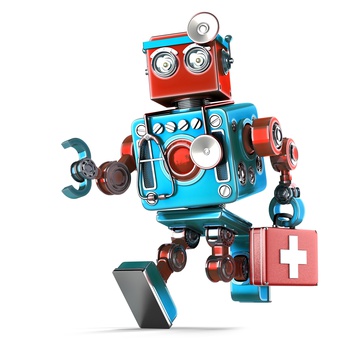
Is Google’s Health Feature Good or Bad?
I’ve often used Google’s Health Panel myself. One of my sons has asthma, and although my wife is a nurse (besides being a wonderful person), I am a stubborn man who must see what the symptoms and treatment options are available for myself. Our doctor prescribed a series of inhalers, one of which was not Albuterol, which I clearly remember taking when I had asthma in my youth. I asked my wife why the doctor didn’t prescribe the ****, and she said that my son didn’t need it. Puzzled, I went to Google, and lo and behold I saw that one of the first ***** listed was none other than Albuterol. Seeing victory in sight I confidently told my wife she was wrong, that Google lists it as one of the first *****! I’m not sure what happened next, everything got a little blurry from there. Thus, I arrived at the very scientific question… is Google’s Health Panel worth the trouble or will it result in the bodily harm of husbands worldwide?

All joking aside, self-diagnosis is a big issue in the health industry, and it raises a lot of serious questions that need to be addressed when looking at the pros and cons of a tool like Google’s Health Panel. In fact, Cyberchondria, the obsession to obtain more and more online information related to a suspected medical illness that ultimately leads to increased anxiety and incorrect self-diagnosis, is a real medical condition. In light of this, we should at least look into the upsides and downsides of an online feature dedicated to disseminating medical information that receives prominent Page One placement on the SERP.
The Case for Google’s Health Panel – Overuse
One of the major issues facing the medical industry is overuse. Overuse leads to higher expenses, less supply, and longer wait times and as such is the topic of a lot “medical chatter.” An often quoted 2011 study by Dr. Paul London of Paul A. London and Associates, indicated that doctors estimate 10% of all visits to their office were unnecessary, and could have been self-treated. Many in the health industry argue that cutting back on doctor visits will free up medical time and resources. In fact, so great is overuse that in 2012 one investigative report found that there was a trend moving towards higher medical deductibles in order to discourage unnecessary trips to a physician.
From such a perspective, Google’s Health Panel gives potential patients the tools to see if a doctor visit is truly warranted. Just personally, I’ve gone to the doctor dozens of times with a sore throat that ended up being nothing, I’m sure we all have. If I had looked to Google, its Health Panel would have told me when to actually see the doctor – “***** with sore throat lasting a week or more.” Simply, affording people, such as myself the knowledge to know what is a real health issue that should be addressed by a doctor and what is not, can be a potent way to reduce overuse and free up medical capital.
The Case for Google’s Health Panel – Accurate Information
Long before Google’s official health feature, people were Googling their symptoms and health concerns regularly. In fact, Google, in its official statement on the health feature said, that one in twenty searches relates to medical content. A 2016 Baltimore Sun op-ed notes the importance of being an informed medical consumer and highlights the recent trend within the medical community to publish less abstruse content. The problem is that finding accurate medical information online is not as easy as you might think.
A 2012 study published in the Journal of Pediatrics noted that 70% of adults said that the medical information they found online had real world implications. The study also noted that in 2012, 59% of Americans used the internet to find medical information. To quote Shakespeare, “ay, there’s the rub.” While a significant proportion of the American population turns to the internet for medical information, a majority of the information is not accurate. The same study was interested in determining the accuracy of website content related to pediatric medical conditions. It found that only 43.5% of websites within Google’s top 100 results contained accurate medical information.

Google’s partnership with the world famous Mayo Clinic in Minnesota, offers an easy way to find broad and accurate medical information right on Page One of the SERP. No one can deny the prolific nature of Google’s medical feature, and no one can deny the veracity of the content supplied by the Mayo Clinic. If you can’t trust the content coming out of the Mayo Clinic, then who can you rely on? In considering this, Google’s health feature offers a way of removing the dangers of online medical misinformation.
The Case Against Google’s Health Panel – The Dangers of Self Diagnosis
Self-diagnosis is not without its controversies. At the end of the day, it’s the user who has to decide if based on Google’s information, a trip to the doctor as opposed to the bathroom medicine cabinet is necessary. Google’s health feature inherently relies on self-diagnosis, even if that diagnosis is “I’d better get myself over to a doctor.” In a 2010 article for Psychology Today, Dr. Srini Pillay outlines some of the dangers that come with self-diagnosis.
In an argument that makes a great deal of sense considering that doctors need to go through a tremendous amount of schooling, Pillay professes that the average user may miss the subtleties and nuances that go into a legitimate diagnosis. He notes that people with mood swings often diagnosis themselves with bipolar disorder.
To be perfectly honest I was a bit taken aback when I saw that Google does indeed offer a Health Panel on Bipolar disorder considering that people who think they may have the condition may not be in the most stable state of mind (more on this later).

A mobile Health Panel on Bipolar disorder
There’s actually a pragmatic problem with a self-diagnosis tool like Google’s Health Panel. According to a Slate.com article, one of the main reasons for ER overcrowding is over-anxious folks who are worried that their headache is really a tumor (and in your head, in your best Arnold Schwarzenegger voice, you’re saying… It’s not a tumor!). Similar to Dr. Pillay’s aforementioned argument, people have a hard time interpreting information when it relates to their own health. There are simply too many emotions involved. As the Slate article puts it, “The truth is, many people don’t have a good way to judge whether a headache or fever is a true medical emergency.” This raises the question, that while Google’s feature might be informative, is it ultimately helpful and healthy in the broad sense?
What Do Doctors Think About Google’s Health Feature?
While people in the SEO community may find Google’s health feature to be either a fascinating tool or an organic encroachment, the question of “information responsibility” still looms. Meaning, is Google acting responsibly when it proliferates medical information, particularly that is not related to common everyday ailments. More pragmatically, what do the content experts on medical conditions think about Google’s prominent Page One content? For this, we would need to ask medical experts to weigh-in on the issue, and so they have.
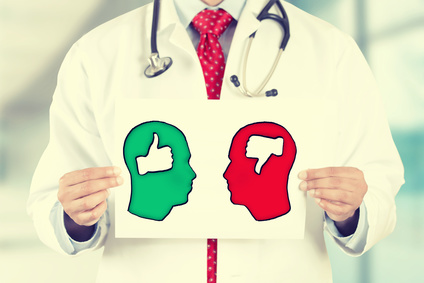
The Good
A 2015 Time article asked six leading medical experts to offer their opinion on Google’s health feature. While the levels of enthusiasm varied, all six physicians seemed to support the initiative, each with their own caveat of sorts. The general consensus was that more information is generally a better thing, for both patients and doctors alike. Dr. William Bornstein, the chief medical officer at Emory Healthcare, perhaps summarized things most pointedly by saying, “Conflicts of interest will also need to be assiduously avoided. If Google does this right, it should provide a nice alternative to random Web searches about health-related topics.” This ties back into an earlier point, the web is filled with random and often inaccurate medical information, Google’s feature, due to its partnership with the Mayo Clinic, without a doubt circumvents this issue.
The Bad
Not all medical professionals were enthralled by the idea of providing information for self-diagnosis. In 2015 a study found that 41% of Canadian doctors did not look favorably on their patients obtaining medical information online. The main concerns centered around false information and patients taking matters into their own hands.
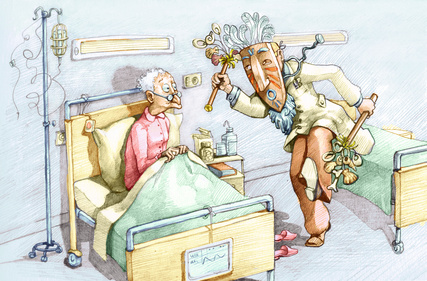
While Google may take misinformation out of the equation, I am not sure it deals with one of main thrusts of the arguments against it as it has no control over what people actually do with the information.
And the Ugly

While there are clinicians who **** Google’s health feature, and others who are not too fond of it, there are still others who downright hate it. Within the medical community there has long been a sort of tension between what I’ll call “traditional” medicine and natural medicine. Indeed, the natural health community, at least some within it, are not too thrilled by Google’s medical information offering. Some outright accuse Google of using the Health Panel as a means of censoring more natural remedies. My intention here of course is not to side with one position or the other, but to simply show how big the divide within the medical community is.
Another issue, and one that is perhaps more mainstream, is how online medical information impacts users predisposed to abusing it. WebMD, in discussing Cyberchondria says, “Even the most reputable health web sites with the most accurate information can cause trouble for the hypochondriac.” Leaving aside the irony that WebMD is a site geared to providing accurate online medical information, the point rings true. For all intents and purposes, someone suffering from a mental illness could be deeply impacted, for the negative, by Google’s health feature.
Google’s Health Panel and Mental Illness
On the topic of using the internet to self-evaluate a mental illness, even with a tool as sharp and sound as the one Google offers, I thought it prudent to discuss the complexities of doing so. In other words, are there extra precautions to take when discussing conditions related to mental illness? If so, does Google take these precautions? If not, is Google fulfilling its moral duty to its users and is it providing sound Page One content? I’m not trying to be critical, I just think the issue of dealing with mental illness requires extra caution.

Obviously, diagnosing, and particularly self-evaluating a mental illness is much more nuanced and complex than determining if an irritated eye is conjunctivitis. For starters, the user, if suffering from a mental illness, may not be in the right state of mind to evaluate their symptoms, whether they know it or not (and therein lies the problem). Secondly, according to the National Alliance on Mental Health (MIMH), not every mental illness is experienced by all in the same way. This of course muddies the self-diagnosis waters. Even for a healthcare professional, diagnosing a mental illness is not always a straightforward process, let alone for a layperson. The National Institute of Mental Health makes it clear that adults seeking to diagnose a mental medical condition as common as ADHD should do so via a licensed mental health professional or doctor…
Truth be told, the information listed by the NIMH for ADHD is a good place to start. The information provided does not shy away from content such as symptoms and causality. However, where the NIMH discusses diagnosis, a two line disclosure about doing so via a medical professional is presented (as partially quoted above). Google, on its Health Panel, does have a one line disclosure that reads “Consult a doctor for medical advice.” However, this disclosure is listed on most panels, whether it be for the common cold or for Bipolar disorder.
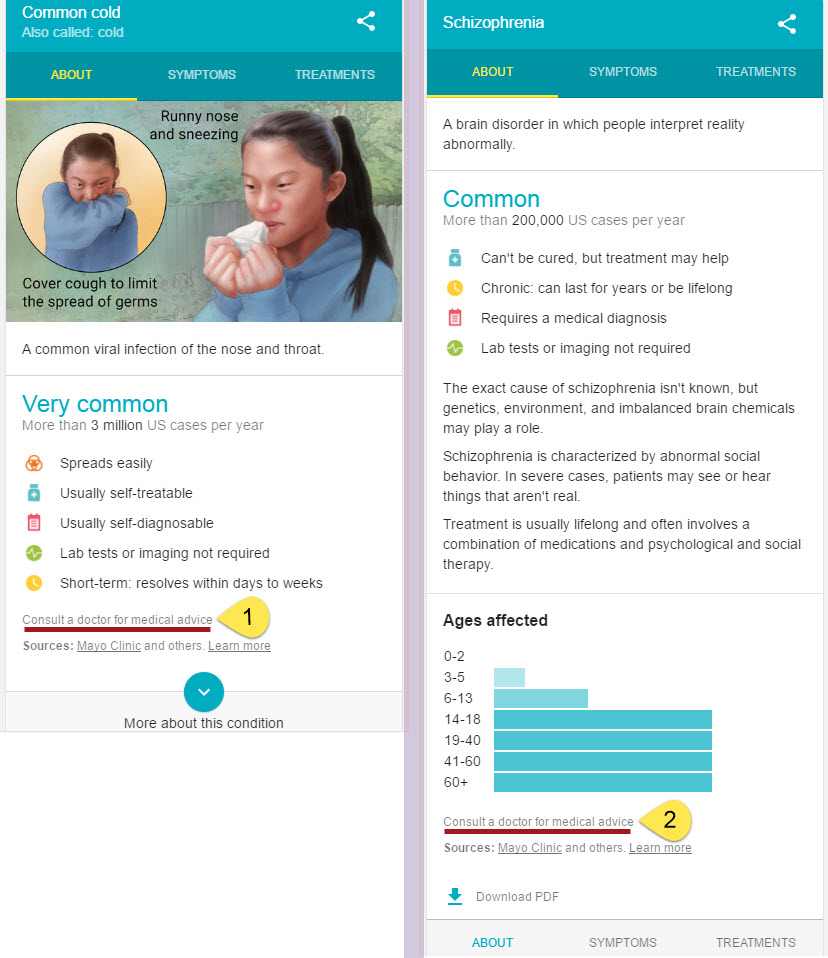
Mobile Health Panel’s for the Common cold and Schizophrenia display with the same medical disclaimer
Compare this with the NIMH on the disorder “Talking with a doctor or other licensed mental health professional is the first step for anyone who thinks he or she may have bipolar disorder.” When Google does emphasize that a condition requires medical diagnosis, it only does so on the feature’s Symptoms “page,” which is not the Health Panel’s main display page.
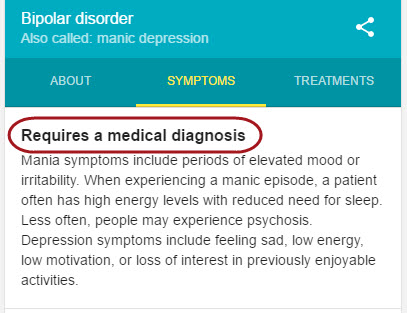
Diagnosis disclaimer for Bipolar disorder found on one of the panel’s secondary pages
Indeed, it’s only for the most serious mental illnesses that Google makes any sort of change to the main display, adding the word “Critical” to its “disclosure.”
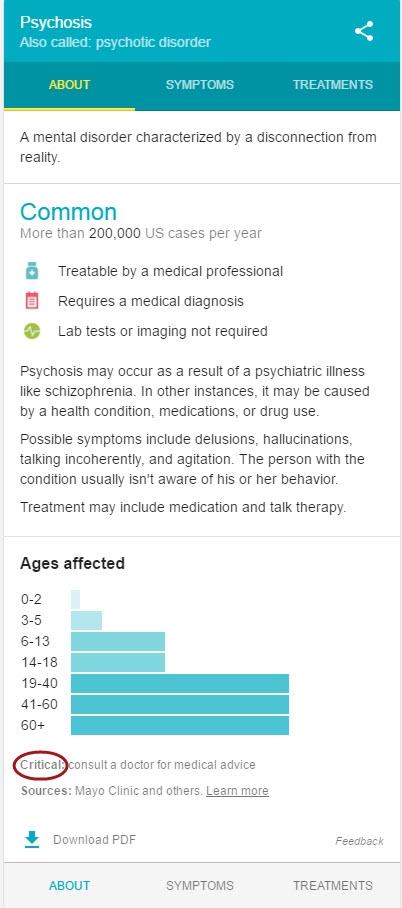
A mobile health panel for Psychosis does present a more compelling disclaimer about seeking out a medical professional
I want to be 100% clear, I’m not criticizing Google in any way. I don’t think they are being negligent, they are of course not being malicious, they simply want to provide comprehensive medical information on Page One of the SERP. Speaking solely from the heart, I feel troubled by the lack of disclosure on the Health Panel to contact a medical professional before making any mental health determinations since the rampant and unnecessary suffering of those afflicted by mental illness is such a serious issue for our society. Mental illness is a serious and complex problem that affects millions of people and any publicly available material on it, whether it be via Google or anyone else, should be lit up like a billboard in Times Square advising users to seek out a medical professional. I’m not saying Google is doing a bad job here, I’m saying that mental illness is so enigmatic that it demands a more emphasized recommendation to seek out a professional evaluation.
Summing up Google’s Health Feature
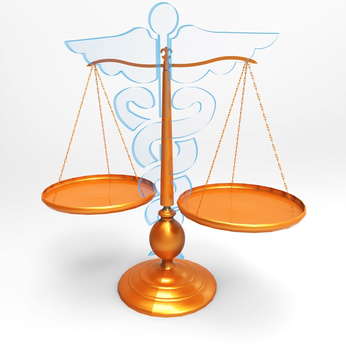
Having gone through the research and opinions from across the medical community, you can make the case either for or against Google placing a panel full of medical information on Page One of the SERP. There are certainly reasons why the feature should be front and center and reasons why it should not be. To me, the question is to what extent is Google obligated to, and to what extent can they, prevent users from being “hurt” by their Health Panel? I’ve made my personal thoughts clear on those panels related to mental illness, I think Google can, and is obligated to do more to ensure that users reading the information clearly, and without doubt, know that they need to discuss the condition with a medical professional. However, for most users the panel is a great source of information and for the most part, responsibility to use it correctly would rest upon the shoulders of the user, not Google.
Perhaps Dr. Rajnish Mago, the director of the Mood Disorders program at Philadelphia’s Thomas Jefferson University Hospital put it best when he was quoted saying, “The internet is a tool, you can use the tool appropriately or you can misuse it.” Or as Spider-Man’s uncle Ben said, “with great power comes great responsibility.”

